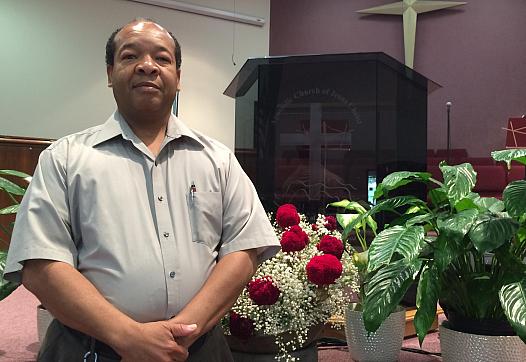
Obamacare has strongly encouraged the creation of accountable care organizations, which focus on coordinating patient care so that, in theory, wasteful practices are eliminated and money is saved. But the early results have been mixed.

Obamacare has strongly encouraged the creation of accountable care organizations, which focus on coordinating patient care so that, in theory, wasteful practices are eliminated and money is saved. But the early results have been mixed.

Health rankings published in recent years have made it clear that there’s a lot of work to do in Wyandotte County, Kansas, which has some of the worst health outcomes in the state, according to the Robert Wood Johnson Foundation.

Despite the numbers of Floridians stranded in a health policy no man’s land – earning too much for Medicaid but not enough for subsidies – the “coverage gap” was getting little attention from policymakers and media. A reporter at the Miami Herald set out to change that, by telling their stories.

The headlines have recently been dominated by talk of health insurers merging, but it's really part of a broader consolidation trend taking place in health care. Health policy expert Paul Ginsburg explains what's at stake when hospitals and physician groups combine, and how California is different.

When LA Times reporter Soumya Karlamangla started looking into health care policies affecting immigrants, she had no idea how fast the California policy landscape was about to change. Reflecting on her reporting journey over the past year, Karlamangla offers key tips for staying ahead of the story.

For three months this year, I spent time with some of the sickest, most expensive patients in America — the so-called "super-utilizers." During that time, I’ve learned about the great promise of programs to help such patients, and why innovations that both improve health and save money are so rare.

From hospital systems to pharmacies, this summer’s health headlines have been filled with tales of consolidation. And no where has the “merger mania” been more evident than the insurance sector. Health policy expert Paul Ginsburg helps us break down the trend in this Q&A.

In Florida, only one in three children receive adequate preventive care, and the state ranks 50th out of 51 states and D.C. in per-child spending. Reporter Maggie Clark will look into what happens when the nation's third-largest state starts "nickel-and-diming preventive care for children."

Tradeoffs are a recurring theme when it comes to Obamacare plans — lower premiums often come with a smaller range of doctors to choose from, as a new database bears out. But as earlier research has shown, the relation between the size of physician networks and quality of care is, well, complicated.

Last year, California embarked on a bold new experiment to improve how care is coordinated among patients enrolled in both Medicaid and Medicare. But the progress has been anything but smooth for a host of reasons, as UCLA health researcher Kathryn Kietzman explains in this overview.